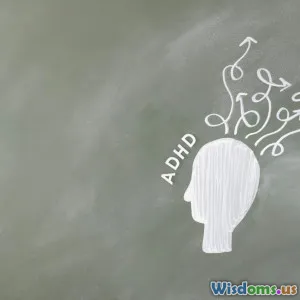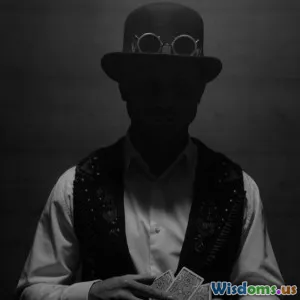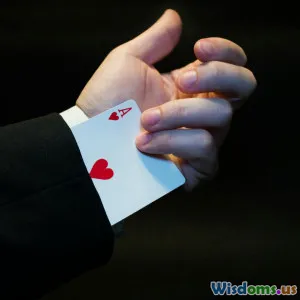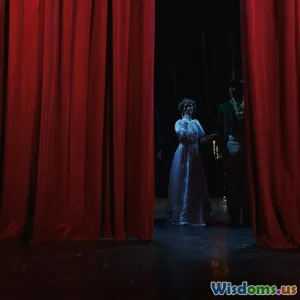
The Psychology of Magic Revealed
6 min read Explore the fascinating psychology behind magic tricks and stage illusions and how they captivate our minds. (0 Reviews)
The Psychology of Magic Revealed
Magic has enchanted audiences for centuries, transcending cultures and generations. But what makes magic tricks so compelling? The answer lies in the psychology of magic—how our brains process information and how magicians exploit these cognitive processes to create illusions. In this article, we will explore the fundamental psychological principles behind magic, the methods used by magicians, and the emotional responses evoked during performances.
Understanding Perception and Attention
One of the core elements of magic is the manipulation of perception. Our brains are wired to interpret sensory information, but this interpretation can be fooled. Magicians utilize various techniques to direct audience attention, creating a phenomenon known as misdirection.
Misdirection Techniques
- Focus Attention: By drawing the audience's focus to a specific point, magicians can perform the secret move elsewhere. For example, a magician might engage the audience with an engaging story or a dramatic gesture, allowing them to overlook the crucial sleight of hand that makes the trick possible.
- Redirection: Sometimes, a magician may create a distraction that leads the audience to believe they are witnessing one action while the actual trick occurs in another context. This technique can be seen when a performer uses verbal cues or visual stimuli to shift focus momentarily.
Cognitive Biases in Magic
Cognitive biases also play a significant role in how we experience magic. Magicians exploit these biases to enhance the effectiveness of their illusions. Here are a few key biases relevant to magic:
- Confirmation Bias: Audiences tend to remember the moments that confirm their beliefs about a trick while ignoring the details that contradict them. This bias reinforces the illusion of magic.
- Expectation Bias: When audiences anticipate a specific outcome, they often overlook deviations from that expectation. Magicians often set up a narrative that leads viewers to expect a particular result, only to surprise them with an unexpected twist.
The Role of Emotion in Magic
Emotions are powerful drivers of human behavior and experience. Magic often elicits strong emotional responses, which can enhance the overall experience. Here’s how magicians engage emotions:
- Surprise and Wonder: The element of surprise is central to magic. When an audience witnesses something impossible, the resulting wonderment can create a lasting memory. This emotional impact enhances the magic experience and keeps audiences coming back for more.
- Suspense and Tension: Many magic performances build suspense, creating a heightened sense of anticipation. As the climax of the trick approaches, the audience's emotional investment increases, making the final reveal even more impactful.
The Science of Illusion
Research in cognitive psychology has shed light on why magic tricks work. Studies have shown that our brains process visual information in ways that can easily be manipulated. For example, the gestalt principles of perception explain how we group visual elements and simplify complex images, which magicians can exploit to create the illusion of impossible feats.
Examples of Research
One famous study demonstrated how people often misinterpret what they see due to the framing of information. In a magic trick, if a magician frames a trick in a way that leads the audience to expect a particular outcome, they are less likely to notice the real mechanics behind it. This aligns with findings from the field of cognitive psychology, which confirm that our expectations can shape our perceptions.
Conclusion
The psychology of magic is a captivating interplay between perception, cognition, emotion, and the art of illusion. By understanding the psychological principles at play, we can appreciate magic not just as entertainment but as a profound exploration of human cognition and emotion. So next time you watch a magician perform, remember that what you're witnessing is not just a trick, but a masterclass in psychological manipulation and an exploration of the limits of human perception.
Whether you're a magician looking to refine your craft or simply an enthusiast eager to understand the secrets behind the magic, grasping these psychological concepts can enhance your appreciation of this timeless art form.
Rate the Post
User Reviews
Popular Posts

















